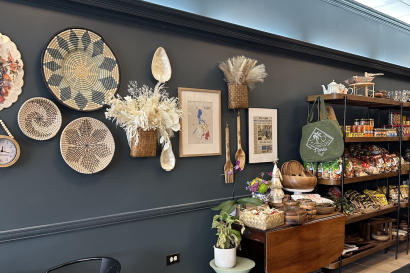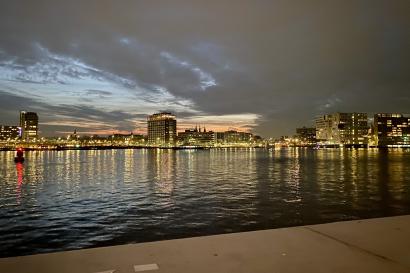
Recently, I went with my new friends to an open market to purchase a Dutch bicycle (a necessity in The Netherlands). I was with three wonderful women: one from Finland, one from Canada, and one from Spain. To set the scene, it’s important to understand many of these bikes are stolen. The Amsterdam Police estimate that 50.000 to 80.000 bikes are stolen annually. Additionally, these probably stolen bikes don’t have prices on them, forcing you to ask the seller about each bike you’re interested in. I heard that Americans are often perceived as wealthy and are often told higher prices at open markets than other nationalities. Considering this, I asked my Finish friend to inquire about a bike price for me. She looked at me a little strange, not quite understanding why, but did and was told a reasonable price of 80 euros. I later explained why I asked her to do that and she laughed, not believing I would have been told a higher price. To test this, I inquired about the next bicycle I was interested in. It was in decent shape with nice tires and a new bell. “120 euro”, the seller said. Too high for my price range. Not even 20 minutes later, my Canadian friend walks over with the bike I asked about, adorned with a shiny new chain lock.
“You bought a bike! Very cool, how much was it?”
“100 euros. It was a little high, but it’s in a really good condition.”
Same bike, different price for a different buyer. For the rest of my open market bike shopping, I put on a heavy midwestern/Canadian-esque accent and told those who asked I was from Canada (Wisconsin is close enough to Canada anyways, right?)
I bought a bike from an Amsterdam Bike Facebook group, instead.
I didn’t realize how much a nationality can define me until I left the States. I’ve been in the Netherlands for almost three weeks now and I’ve never been so aware of how I present myself in public. Don’t talk too loud, don’t ride your bike like a tourist, don’t wear sweatpants in public, try and complete transactions in Dutch, don’t be wasteful, be respectful. Still, even though I am conscientious of the American stereotypes, I get stared at. I get stared at a lot. Why? I wish I could answer that. Teasing apart the possible motives for the staring is mind-turning: Is it how I dress? How I walk? Do I look or sound too American? Why do I stand out? This perpetuating line of reasoning has kept me up my first few nights in the Netherlands.
While explaining this phenomena to my friends and family back home, they tend to express frustration saying how “not all Americans are like that!” or “that’s really prejudiced of them!” Boiling entire ethnicities and nationalities of people into a simplistic lists of stereotypes can be prejudiced and short-sighted. However, it’s a lot easier to see these tendencies when they’re being done to you. No, not all Americans are Trump-supporting, gun-slinging, uneducated, racist, wasteful, or wealthy. This is true. But similarly, this argument can transcend any culture and produce hundreds of hashtags proclaiming not all Muslims, not all Europeans, not all lesbians, not all men, etc. etc.
The beauty of leaving your country is the ability to see these discrepancies and tendencies in yourself, as well as between and within cultures. Experiencing a non-tourist peek into a culture is by far the best thing I’ve done for my individual growth to date. Day by day, it’s allowing me to experience being “othered” on a different basis. It also allows me to have conversations with people from all over the world, diversifying my perspectives of people from Finland, Canada, Spain, and The Netherlands, and diversifying their perspectives of Americans.

Shana Pike
<p>Hello folks! I'm Shana, a small-town tree-hugger with a big appetite for experiences, culture, and knowledge. I'm an undergrad student of Psychology and Gender Studies, yearning to understand my surroundings better each day. Welcome to my conglomeration of ideas and passions, all nourished by traveling, friends, spinach, and coffee.</p>






